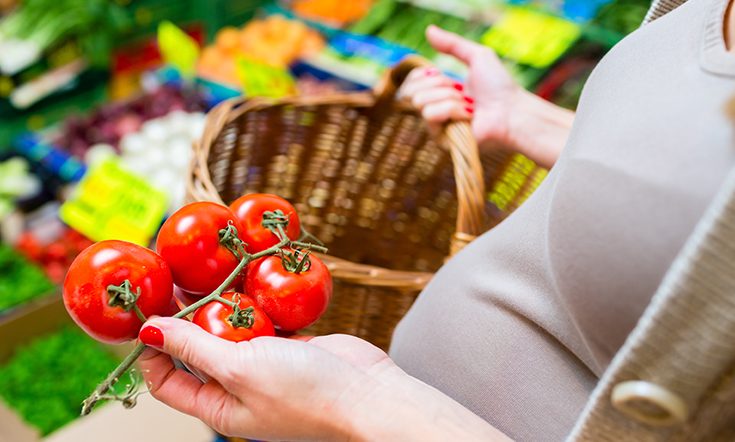

A nutritional diet is very important for any expecting mother, but especially if she also has gestational diabetes. A well-maintained diet can keep her blood sugar levels under control, not only for her own benefit but also for the health of the unborn baby. The expectant mother should keep count of the calories she consumes each day and she should be very careful about what she eats. All sugary products should be avoided and any other product that can trigger the increase of her blood sugar level. It is recommended that you seek the advice of a trained dietician and then plan the gestational diabetes diet plan with their assistance.
The gestational diabetes diet plan should be made keeping in mind the fact that only nutritional food has to be taken and anything that can increase the blood sugar level has to be avoided. This is very important for the mother as well as the baby. After the first trimester, the calorie intake should also be increased by 300 calories, which means that the mother has to take at least 2100 calories a day from the fourteenth week of her pregnancy until her baby is born.
Vitamins and minerals have to be taken without fail during the pregnancy. All dairy products that are low in fat can be taken. Foods like whole grain cereals and breads, lots of fruits and vegetables have to be included in the gestational diabetes diet plan. One can also take prenatal vitamins, which have to be taken at night before sleeping or in the morning on an empty stomach. That way iron is absorbed better. But keep in mind that these prenatal vitamins are not as beneficial as vitamins that you get from natural sources.
What Foods to Avoid?
All foods containing high amounts of sugar have to be avoided during pregnancy, as the blood sugar levels will increase.
Foods like: cakes, cookies, ice creams, lollies, soft drinks, pies, commercial fruit yogurt, jams and jelly could be very harmful if you are on a gestational diabetes diet.
One fruit juice can be taken with a meal – about 6 ounces but not more than that, as large amount of sugar is present in fruit juices. Tomato juice is best as it contains the lowest amount of sugar.
Any foods that contain complex carbohydrates are good and must be included in the gestational diabetes diet.
Foods like: vegetables, cereal, grains, beans, peas and other starchy foods help to decrease the amount of insulin required by the body.
Thus the blood sugar levels can be maintained and controlled. Foods like whole grain cereals and breads, fruits, vegetables and legumes have high dietary fiber and should be taken to boost the digestive process. Fat is also very important to absorb vitamins in the diet, but take care to make use of low fat foods.






















